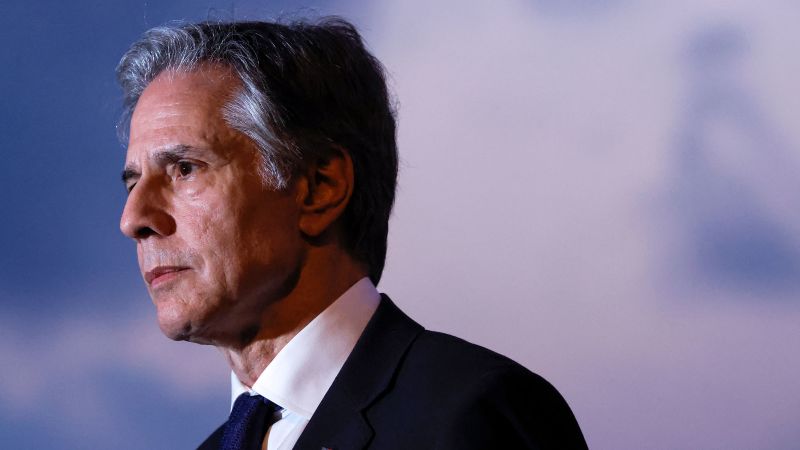Arab and Palestinian Americans met with Secretary of State Antony Blinken in hopes of receiving clarity on how the Biden administration would address their concerns amid the Israel-Hamas conflict in Gaza. However, participants left the meeting feeling frustrated and disappointed as no concrete plan was shared that instilled confidence in immediate solutions. This emotional and heated meeting highlighted the division within the Palestinian and Arab American community over engagement with the White House, with some members expressing sadness and anger over the administration’s policy towards the conflict.
Many members of the community feel that President Biden would need to make significant policy changes to regain the support of key political coalitions, including Arab and Muslim Americans and progressive voters. Despite multiple meetings with White House officials, the community is disappointed in the lack of action taken to halt the fighting in Gaza. Specific demands were made during the meeting, including an immediate ceasefire, release of hostages and prisoners, withdrawal of Israeli forces from Gaza, humanitarian aid access, halt to US arms shipments to Israel, and rebuilding of devastated Palestinian communities.
Despite the demands put forth by the Arab and Palestinian American leaders, no commitments were made by the administration during the meeting that lasted over 90 minutes. While some attendees felt cautiously optimistic, there was uncertainty surrounding the actions the administration might take. The attendees emphasized that engagement with the administration is important in driving policy change, but they were clear that future meetings would only happen with significant policy changes already in place.
The Biden administration’s temporary pause on a shipment of bombs to Israel was viewed as insufficient by the meeting attendees, who saw it as a small step that would not lead to significant policy changes. There was a sense of callous neglect from the administration towards the Arab American community, prompting a push for engagement to drive real change in policy. Some community members, like Bilal Hammoud, expressed reluctance to attend future meetings without concrete actions already taken by the administration to address the concerns of the Arab and Palestinian American community.
The attendees acknowledged the risk the Biden administration is taking in potentially losing support from not only Arab Americans but also allies from other ethnic backgrounds who stand in solidarity with Arab, Palestinian, and Muslim Americans. With the November elections approaching, there is a sense of urgency among the attendees to ensure their demands are heard and acted upon by the administration. The community is willing to engage in dialogue, but only if there are tangible policy changes implemented to address the ongoing conflict in Gaza and support the Palestinian population affected by the crisis.


